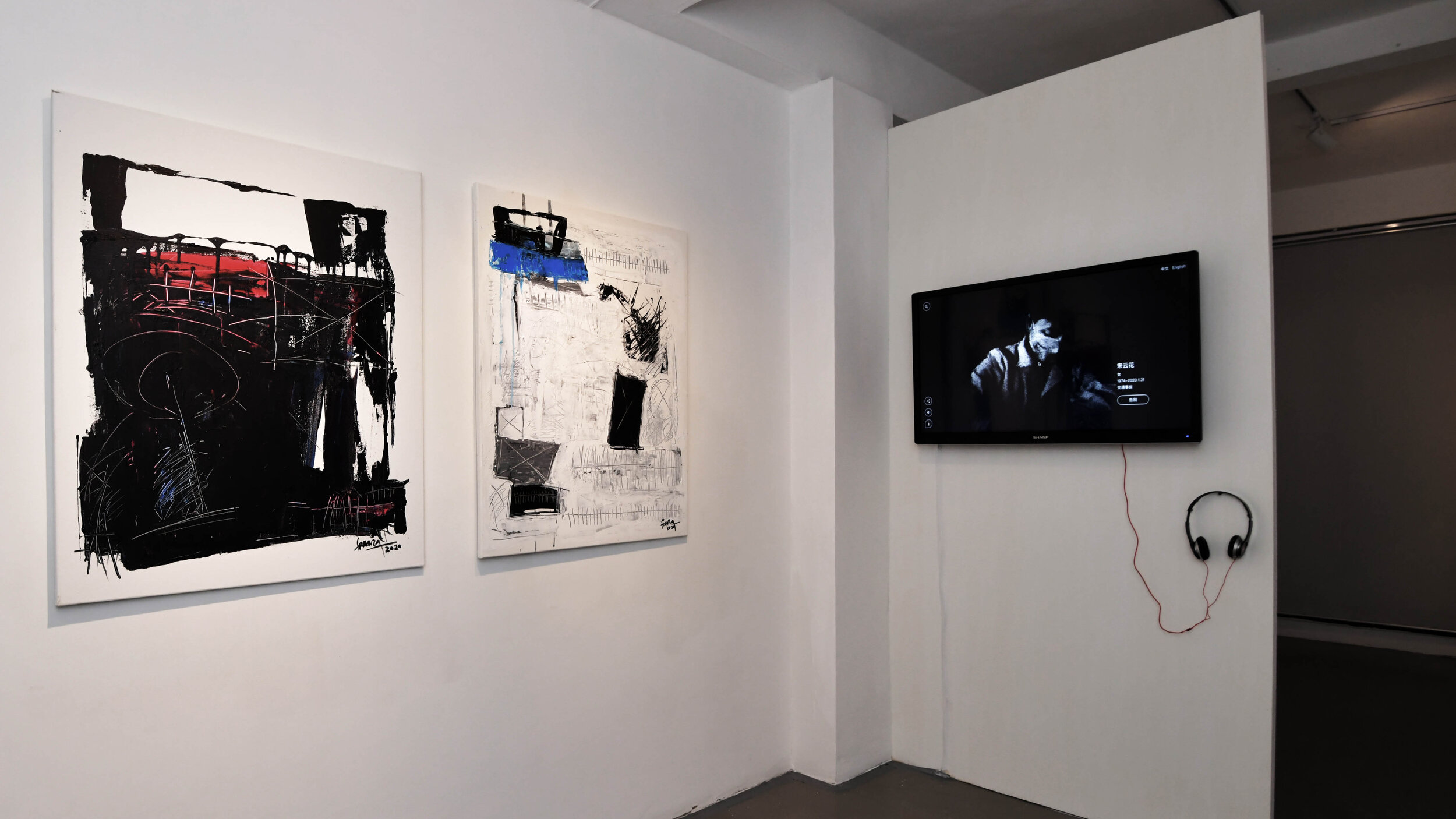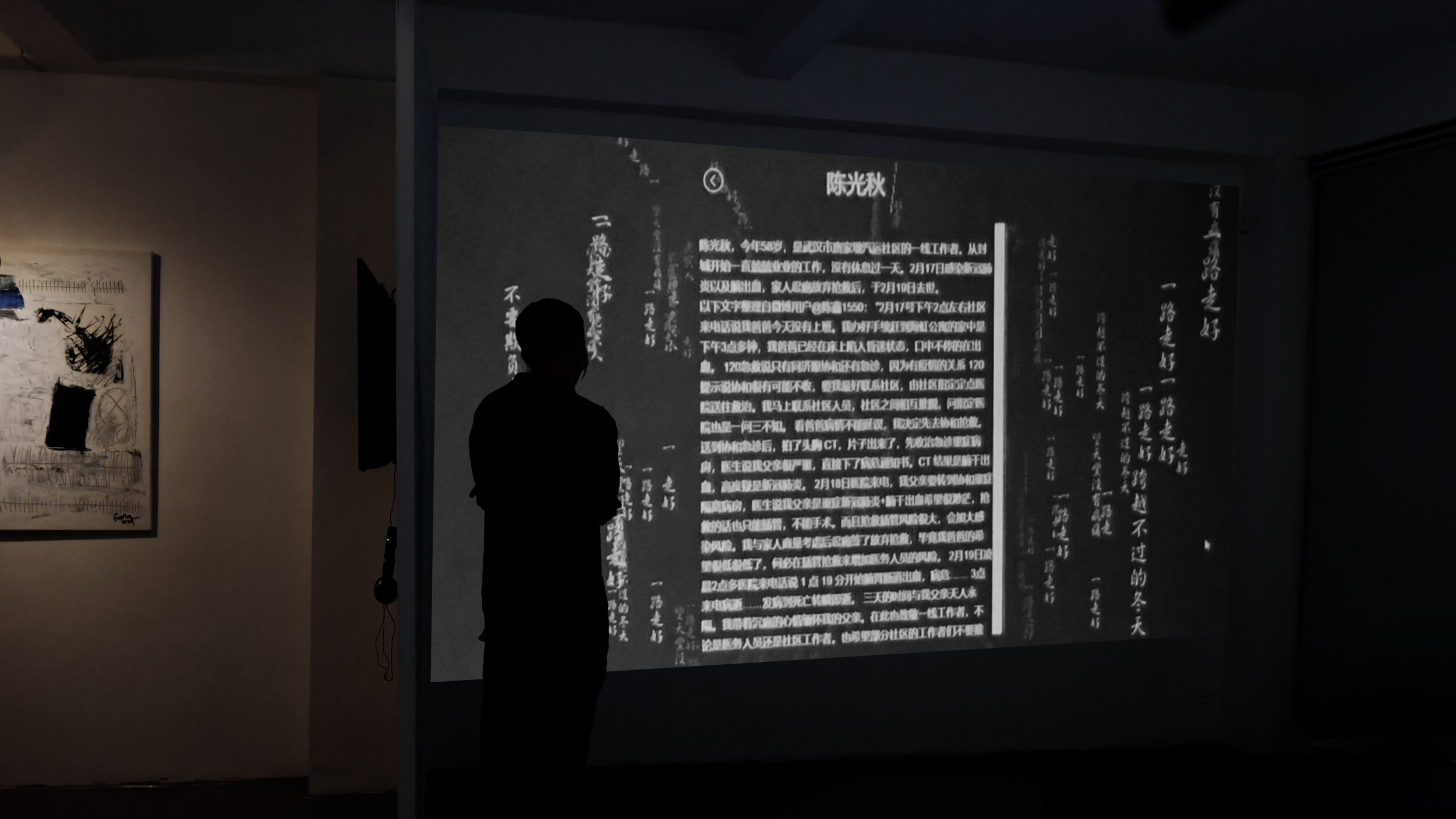Unfinished Farewell
As COVID-19 spreads across the globe and the number of deaths continues to rise, the heartbreaking experiences are being replaced by collective mourning. As German journalist and pacifist Kurt Tukholsky said: "The death of one man is a tragedy, the death of millions is a statistic".
When we look back at the help-seeking posts of those lost, those who waited to die because of unconfirmed testing; those whose death certificates were being tampered with; those who committed suicide out of despair; those non-COVID patients whose life-saving medical treatment was foregone… None of them were included in the death toll, and are likely to be forgotten over time. They didn’t have a fair medical treatment during their lifetime, and they were not mentioned after their death. The same is true for many frontline workers who lost their lives due to infection or overwork.
While connecting with families of those lost, one daughter asked: “After this pandemic, who can remember the pain of someone like my mother who had nowhere to seek medical treatment, was refused by the hospital, and died at home?" This is one of the reasons why we built this online platform, trying to document as many people who have left us because of the pandemic as possible. The website also includes the help-seeking information they posted before they passed away, which is the evidence they left to this era. We hope to provide a space for family members to release their grief and for the public to mourn.
Behind every number is a life.
Here we try to gather the portrait for each deceased. You’ve never met this person, but their portrait is right in front of you, but then you realized that they’ve passed away. As soon as your finger lingers on the person’s face, it scatters and vanishes. You haven’t have a chance to really get to know this person, they just fade away. I designed the website this way so that when visitors enter this space, they can sense that sort of atmosphere: sorrow, grief, solemn, melancholy, mourning, agony. A comparable feeling that visitors can have as if they are physically visiting their tomb. This gives us much more understanding of death than the increasing statistics. Enter each individual’s space by clicking “Farewell”. You can see the help-seeking information they posted before they passed away. You can leave a message. All the messages people sent here will float in the space. Here are some messages we’ve received since publishing:
"需要大声呼喊,才会被注意到吗?"
"对逝者最好的缅怀就是在有生之年不要失忆"
"走好,希望你再做警察时候,可以换一个岗位。"
“不能,不明白。“
"因为你的存在,我永远会学着去爱人类。"
"希望至少可以知道你的名字,而不只是未知姓名,愿你安息”
"鄢成,你走之后,你爸爸和弟弟依旧推着你的轮椅和你一起吃饭"
"没有说话的自由,也没有死亡的自由"
“Do I need to shout loudly to be noticed?”
"The best memory of the deceased is not to lose memory in your lifetime”
"RIP, I hope you can change your job if you become policeman again.” (To a cyber police who passed away out of overwork for deleting sensitive messages.)
“Can’t understand, don’t understand”
"Because of your existence, I will always learn to love humankind.”
"I hope I can at least know your name, not just the unknown name, RIP”
“Yancheng, after you leave, your dad and brother still push your wheelchair to eat together with you”
"No freedom to speak, no freedom to die”
Uncertainties: PRD Post-pandemic Contemporary Art Exhibition, Macao, 2020
Someone uploaded her grandmother's information who passed away to our website, and wrote how much she misses her: “Thank you, grandma, and thank you for seeing me as more than your life. Grandma, you must take care of yourself. Please rest assured and I will take care of this home. Grandma, I really miss you, Grandma, I love you.”
Besides the grand narratives of how “successfully” we are conquering this disease, we hope to use this project to retain these painful memories of the ordinary people. More or less recover the feeling of death at that time. Those who are outside of the statistics, at least they left some traces for us to understand more about death.
In response to “Female Medics in China Having Their Heads Shaved as Propaganda in the COVID-19 Fight” - using women’s body as tools for propaganda.
Qingming: A Sculpture of Resilience
This is an online space in memory of COVID-19 victims.
It takes you to the Hongshan Auditorium in Wuhan, the place where the “Two Sessions” of Hubei were held in January 2020. You can leave your name here to join the counter-clockwise walk and commemorate the lost life.
April 4, 2020 (Qingming Festival), 15:00-24:00 (GMT+8), 1824 people walked counterclockwise in front of the Hongshan Auditorium in Wuhan.
These walking paths formed into an online monument, standing permanently in front of Wuhan Hongshan Auditorium on major map websites.
we shall never forget our pain and tear. Neither should we stop examining the systematic problems exposed during the crisis, and strive for a better future.
Exhibitions and Awards
Ming Contemporary Art Museum, Shanghai, 2021
OCAT Contemporary Art Terminal, Shenzhen, 2020
Uncertainties: PRD Post-pandemic Contemporary Art Exhibition, Macao, 2020
Webby Award, 2022
A’ Design Award, 2021
CHI, 2022, Jury’s Best Demo Recognition
Special Special Gallery, New York, 2020








